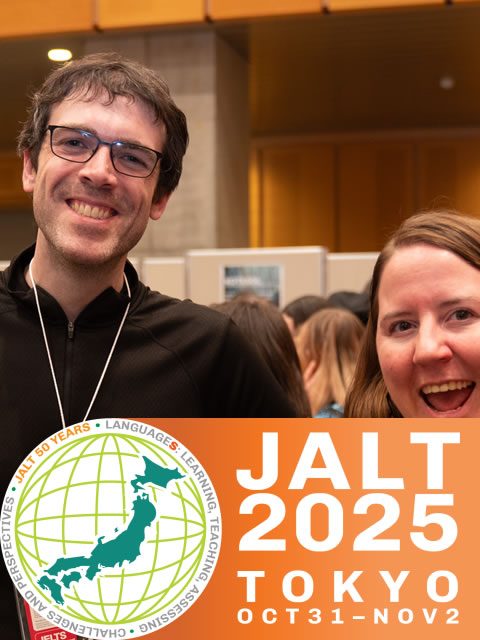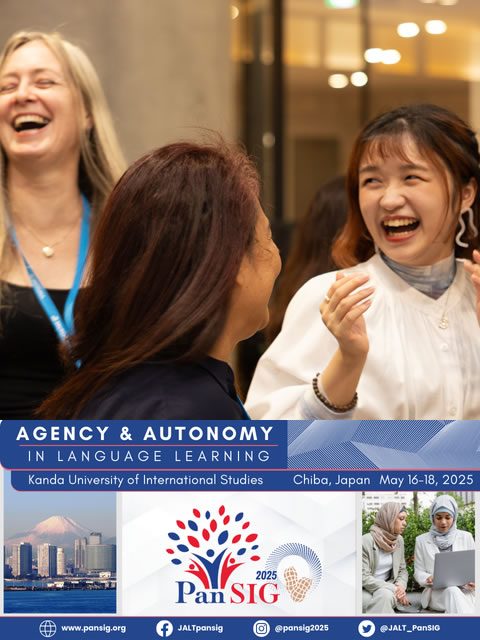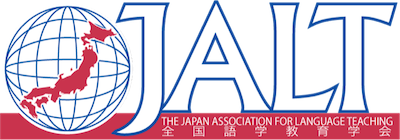Your cart is currently empty!
Event Report, Gunma Chapter September 2019
•
The 30th Annual JALT Gunma Summer Workshop, in Kusatsu
September 7th 1PM thru 8th 12PM
Kusatsu Seminar House
737 Shirane, Kusatsu-machi,
Agatsuma-gun, Gunma 377-1711
Featuring Dr. Charles Browne – Vocabulary Acquisition Tools
Lecture 1: The New General Service List Project: Meeting the Needs of EFL Learners, Teachers and Materials Developers
by Dr. Charles Browne
This presentation discussed five free corpus-derived word lists that the presenter helped to create in order to help meet the needs of second language learners of English, as well as introduced some of the interesting research studies that have been done over the past few years using these word lists. The lists included:
• the New General Service List (NGSL), a list of words which provide the highest coverage of written, general English
• the NGSL-S, which provides extremely high coverage of spoken general English
• the New Academic Word List (NAWL) for important academic vocabulary
• the Business Service List (BSL) for general business English and
• the TOEIC Service Lists (TSL) for TOEIC test preparation.
Lecture 2: Free Corpus-based Word Lists and the Online Tools to Exploit Them
by Dr. Charles Browne
This session introduced and demonstrated a large and growing number of free and paid online tools and resources for helping to utilize the five word lists created by the presenter as well as for vocabulary learning in general. The tools can be used for teaching, learning, materials creation as well as for research and analysis. The tools included interactive flashcards, diagnostic tests, games, vocabulary profiling apps, text creation tools, and more.
Dr. Browne is Professor of Applied Linguistics and TESOL at Meiji Gakuin University. He is a specialist in Second Language Vocabulary Acquisition and Extensive Reading, especially as they apply to online learning environments, and has written dozens of research articles, books, and textbooks over his 30 years in Japan. In addition to his work in creating several important new corpus-based word lists and a wide range of free online tools to teach, learn and create texts based on these lists, he has also developed many free online ER/EL and vocabulary learning sites, tools and apps, working hard to share this knowledge through countless presentations, seminars and hands-on workshops around the world.
Presentation 1: Me, Myself, and Eye: Struggles of a Visually Impaired Student
by Heather McCulloch
Because Heather’s disease is rare, she began by explaining what it is. She then discussed daily struggles (though she prefers calling them lifestyles), both serious and comical, she faces and further discussed struggles visually impaired students face. She offered ways for the teacher to assist students with the same struggles.
McCulloch was born legally blind and at age 11 she was diagnosed with Retinitis Pigmentosa, a retinal disease with no known cure. She refuses to let this slow her down. She loves to work hard and live life to the fullest. Her accomplishments include receiving a MA TESOL, working as a part-time lecturer at various universities in Gunma, surfing in Malibu, and climbing Mt. Fuji. Her motto is “The only thing that can stop you is you.”
Presentation 2: The Effects of Overseas Study on High School Studnets’ Second Langauge Memory Ability
by David Coulson
This session concerned the effect of a year abroad on the English ability of high-school students. The task was elicited imitation, where people repeat short texts as accurately as possible. The texts were very simple, written with high-frequency phrases from Martinez and Schmitt’s (2012) Phrasal Expression List. Formulaic language is now recognized as central in language processing, facilitating memory function. The question was to what degree such language is learned implicitly while abroad. The result indicated that expliciting learning the most common phrases of English would help strengthen English ability. Further, extensive reading is a source of reinforcement of L2 ability. Coulson showed a snapshot of the exposure to phrasal expressions available from reading materials available at Extensive Reading Central.
Coulson teaches in the MA program of Ritsumeikan University, and supervises students’ research on English and Japanese applied linguistics.
Presentation 3: How EFL Learners’ usage of Communication Strategies is Influenced by their Proficiency and Task Types
by Yuka Masutani
Masutani explored adult EFL learners’ use of communication strategies in dyadic tasks. Users’ mutual proficiency levels and task types had an influence on strategy use to some extent, and a time-gaining strategy was by far the most frequently used strategy. No learner employed message an abandonment strategy. This may be due to the higher motivation of learners and also a well-balanced power dynamic among all participants. During the tasks, they tended to self-repair their previous utterances. Modified output seldom transpired since the participants correctly understood each other’s communicative intentions.
Masutani is currently a beginning PhD student at Doshisha Women’s College, researching EFL Learners’ Affective Strategy Use
Presentation 4: What is the Best Vocabulary Learning Strategy?
by Hiroshi Mikami
No matter what level you are, if you have studied foreign language before, you know grammar and vocabulary are the two fundamentals that develop foreign language learners to be fluent. In general, many Japanese people study English and master most of the grammar from elementary school to high school or University. However, vocabulary learning is endless and many of us wish to memorize vocabulary quickly and effectively for various purposes such as English proficiency exams and University entrance examination etc. Briefly explaining his experience of English study, Mikami had been one of students with low grades in English in Japanese high school, but heI turned out to be a relatively proficient English speaker through a few turning points: high school study abroad in Canada, intensive study in the language school in Sapporo to achieve high score in TOEFL and enter prestigious Universities in Japan, and University study abroad in the US. He explained what he discovered about vocabulary learning based on his English learning experience, previous books and literature, and how he developed his research on vocabulary learning strategy.
Mikami worked at SUNY (State University of New York) at Oswego, tutoring ESL students, taught English to elementary and middle school students in Eisu Gakkan (Jyuku) in Furano Hokkaido, and is currently teaching English to middle school students as a tutor. He is also involved in LAMP, a volunteer organization run by Joetsu University that supports foreign students residing in Joetsu and neighboring areas.

JALT2025 International Conference
2025年10月31日(金)〜2025年11月02日(日) 東京都渋谷 国立オリンピック記念青少年総合センター Friday, October 31 – Sunday, November 02, 2025 • National Olympics Youth Memorial Center, Tokyo, Japan

PanSIG Conference
PanSIG 2025 will be held May 16-18 in Chiba. PanSIG is an annual conference organized by JALT’s Special Interest Groups (SIGs).
